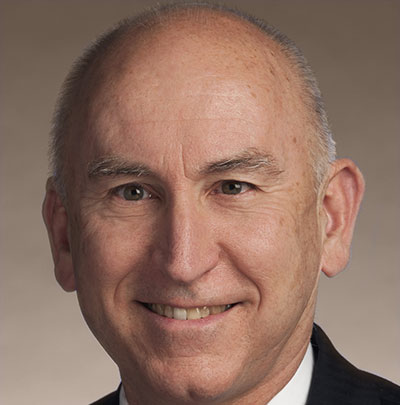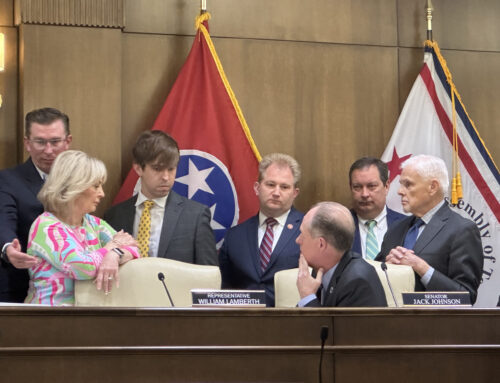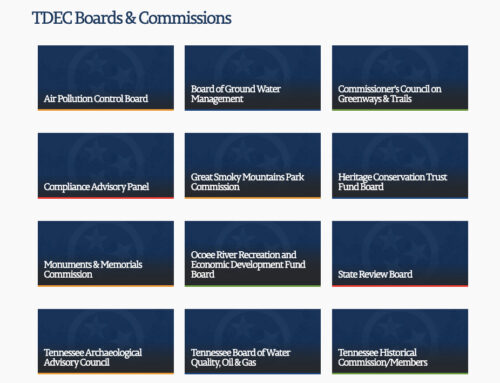When citizens go to a public meeting of their local board of aldermen or county commission, they expect their representatives to be there.
They expect their representatives to discuss issues in public and vote in public. They expect to look them in the eye when they address them during public comment periods and public hearings. They hope to be able to talk to their representatives before and after a meeting, and many do.
But a bill that passed a key Senate committee in a 5-4 vote last night would chip away at that tradition.
SB301 would allow members of county and municipal governing bodies, and all utility boards, the right to two “electronic passes” a year in which they could skip a meeting and could call in their vote instead.
Sen. Richard Briggs, R-Knoxville, said he was asked by the chairman of the Knox County Commission to bring the bill because a county commissioner in Knox County couldn’t walk after an orthopedic operation and had to miss two county commission meetings. His constituents were, as Briggs characterized it, “disenfranchised” on votes during those meetings.
But the bill goes beyond helping those recuperating from serious surgery.
The two electronic passes can be used for family emergencies, medical emergencies and work conflicts. Interestingly, the bill doesn’t prohibit elected officials from receiving their government per diem payment, even if they patch into the public meeting for a just few moments for a vote.
The bill initially applied to the 95 county legislative bodies but was expanded to include all municipal boards of aldermen, city councils and city commissions, of which there are about 340 in the state. A late-filed amendment adopted last night added to the bill hundreds of utility boards that deal with water, electric, solid waste and other public infrastructure.
The bill is written as an exception to the entirety of the Open Meetings Act, in that where it conflicts, the new legislation would govern.
The bill’s sponsors, which include state Rep. Dave Wright, R-Knoville, have said the bill is permissive — that local governing bodies would not have to allow electronic participation of members if they didn’t want to.
But the bill’s language is murky, at best, on this point.
The bill says the member “may participate” in a meeting by electronic means if the member meets one of the qualifications.
The bill requires the governing body to develop a policy for meetings with electronic participation but the bill doesn’t say the governing body can opt out. A member who wants to participate remotely because of work must give five days’ notice to the chair, but the bill doesn’t say the chair can deny it.
Strangely, the fiscal note on the bill points to permissive authority in Section 109 of the Open Meetings Act that says a governing body may, but is not required to, allow electronic communication over an Internet forum. Section 109 was developed to allow members of a governing body to email each other over an open Internet forum without running afoul of Open Meetings Act rules. But Section 109 would be irrelevant in any authorization for a board member to patch in by phone to an otherwise physical meeting, and it would be canceled out anyway by the proposed new bill which overrides all parts of the open meetings act in its opening statement.
It’s unclear whether the bill would allow members to email in their votes (as the Tennessee Registry of Finance did last year and then lost an open meetings lawsuit over it). The bill just refers to “electronic means.”
Briggs amended the bill to limit the number of governing body members who could participate without actually being at any given meeting to three members or 20 percent of the governing body, whichever is greater. So for a county commission of 25, five members could be on the phone. For a board of aldermen of seven members, three could be on the phone.
For the Metropolitan Council of Nashville and Davidson County, which has 40 members, eight people could patch in by phone. In all cases, a physical quorum — one more than half of the board — would have to be present in person.
Briggs pointed to how he thinks the bill would increase transparency because any board allowing electronic participation at any given meeting would have to broadcast or stream video of the public meeting. But the bill does not require a broadcast or live streaming. It says the governing body must provide information to citizens on how to “obtain real-time, live access to, or broadcast of, the meeting.”
During the pandemic, this has included a telephone number that citizens could call. And while it’s clearly not the intent, what’s to stop a governing body from telling a citizen they can have real-time live access if they come to the physical meeting?
In addition, some governing bodies in the state, such as the Knox County Commission, already stream their meetings live. The Knox County Commission does this over community television.
Reflective of just how few transparency requirements governing bodies will agree to be added in state law, the bill “strongly urges” but does not require governing bodies to post their agenda of the meeting on their website. In fact, legislation last year to require governing bodies to post their agenda on their website met with intense opposition from governing bodies throughout the state.
Sen. Todd Gardenhire, R-Chattanooga, said he didn’t think the possibility of broadcasting or streaming meetings live warranted opening the door to electronic participation by governing board members.
“Yes, you can make the argument that their constituents were disenfranchised for those days,” he said last night during a discussion on the bill. “Personally, I don’t buy that part. We all get elected and we all understand the responsibilities of being in elected office, and part of that responsibility is being here, participating.”
“We open the door to these types of things that everybody will jump on,” Gardenhire said. “Once you crack that door open, it never stops and you add things to it.”
Briggs closed by acknowledging that this would be new and different. He compared it with how the United States once did not let women and slaves vote.
“This is not about the member,” Briggs said. “This is about citizens. It’s about the people we’re supposed to represent.”
Voting for the bill in the Senate State and Local Committee were Sen. Sara Kyle, D-Memphis, Sen. Bill Powers, R-Clarksville, Sen. Ed Jackson, R-Jackson, and Sen. Ken Yager, R-Kingston, and Briggs, who is chairman of the committee. Voting against the bill were Gardenhire, Sen. Page Walley, R-Bolivar, Sen. Jeff Yarbro, D-Nashville, and Sen. Brian Kelsey, R-Germantown. The bill will be heard by the House Finance, Ways, and Means Subcommittee next week, and also is expected to go to the Senate floor for a vote.
The bill would mark a major turning point for Tennessee in defining the nature of public meetings and public service.
TCOG believes that a public meeting is not simply a list of public declarations by those who govern, and those who are governed are permitted to watch. An information flow occurs at a public meeting that is beneficial to everyone. We’d like to keep that benefit.





